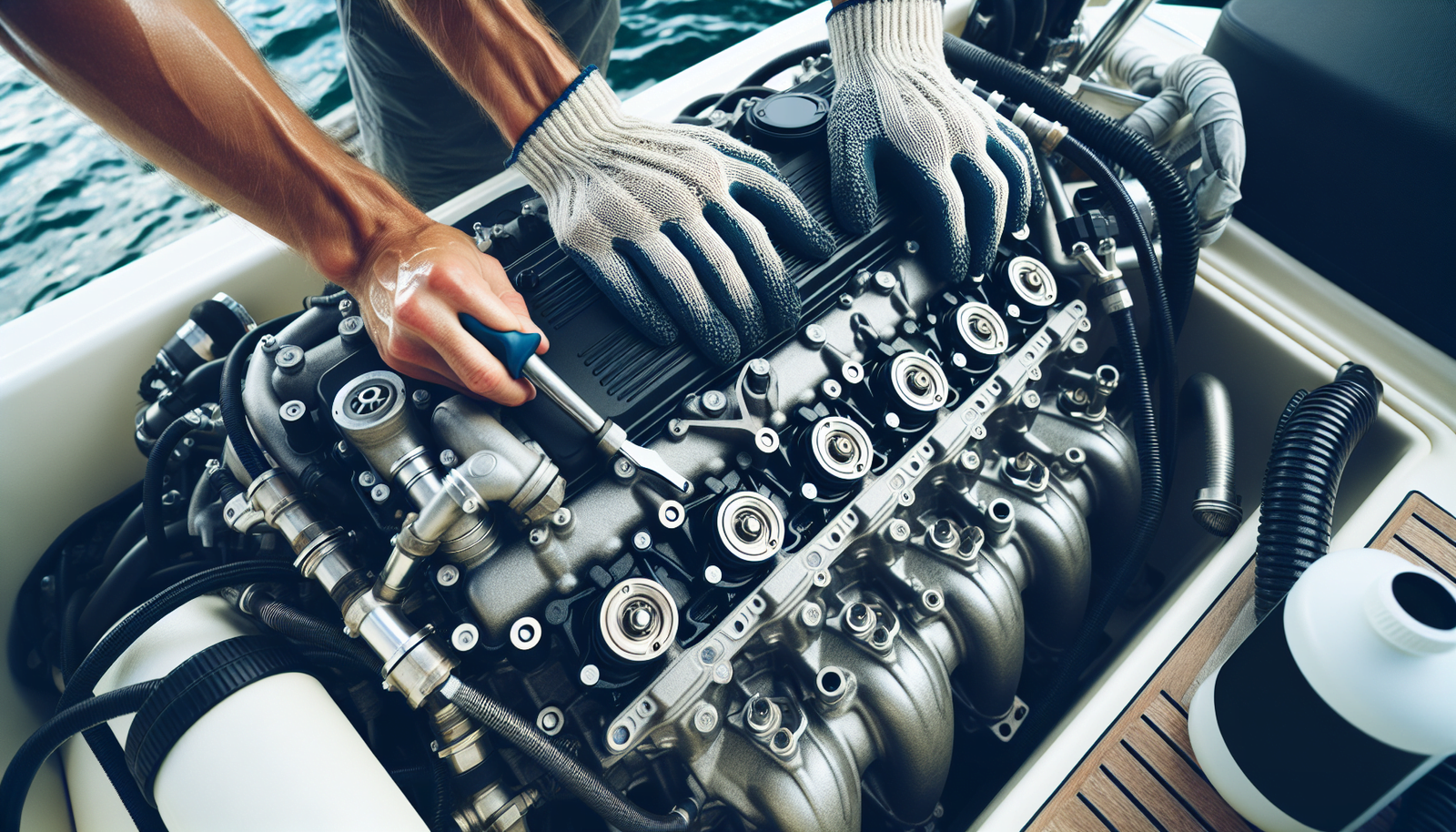Imagine yourself on a gorgeous sunny day, the wind in your hair, the soft splash of water against the side of your boat. But suddenly, the engine sputters and dies. Could it be another maintenance mistake? Unfortunately, this scenario is all too common for boat owners. With “Top 10 Boat Engine Maintenance Mistakes to Avoid”, we’ll show you the most typical oversights that lead to such predicaments and how to prevent them ensuring that you never miss another day of smooth sailing.
Ignoring Manufacturer Recommendations
Before diving in, it’s essential to remember that manufacturer recommendations exist for a reason. They’re the result of rigorous testing and years of experience in the marine industry. Unfortunately, many boat owners often ignore them.
Disregarding suggested maintenance schedule
A key mistake you can make is disregarding the suggested maintenance schedule. Remember, this isn’t advice – it’s an essential roadmap to keeping your boat engine in tip-top shape. Whether it’s about regular oil change or certain inspections, adhering strictly to a maintenance schedule can save you significant trouble and expenses in the future.
Using non-recommended or inferior parts
Another common error, especially if you’re trying to save money, is using non-recommended or inferior parts. Skimping on quality can take a massive toll on the engine’s lifespan and might even create unsafe conditions on the water. Always make sure to source parts recommended by your engine’s manufacturer, ensuring compatibility and proper performance.
Ignoring manufacturer recommended fluids and lubricants
Fluids and lubricants keep your boat’s engine running smoothly. Overlooking the manufacturer’s recommendations on this can cause severe damage since every engine has specific requirements when it comes to such substances.
Foregoing Regular Oil Change
Just like your car, your boat engine needs regular oil changes to function correctly.
Underappreciating the importance of regular oil change
Regular oil changes are not a luxury but a necessity. Neglecting this can lead to a build-up of dirt and debris within the engine, which can cause everything from performance issues to full-blown engine failure.
Ignoring the right brand or type of engine oil
While it could seem easy to just pick up any brand or type of engine oil, using the wrong one can lead to disastrous consequences. Each engine requires a specific type of oil, which matches its functionality.
Not checking oil level frequently
One crucial step to maintaining your engine that is often overlooked is frequently checking the oil level. Running your engine on low oil or overfilling it can be as harmful as not changing the oil at all.
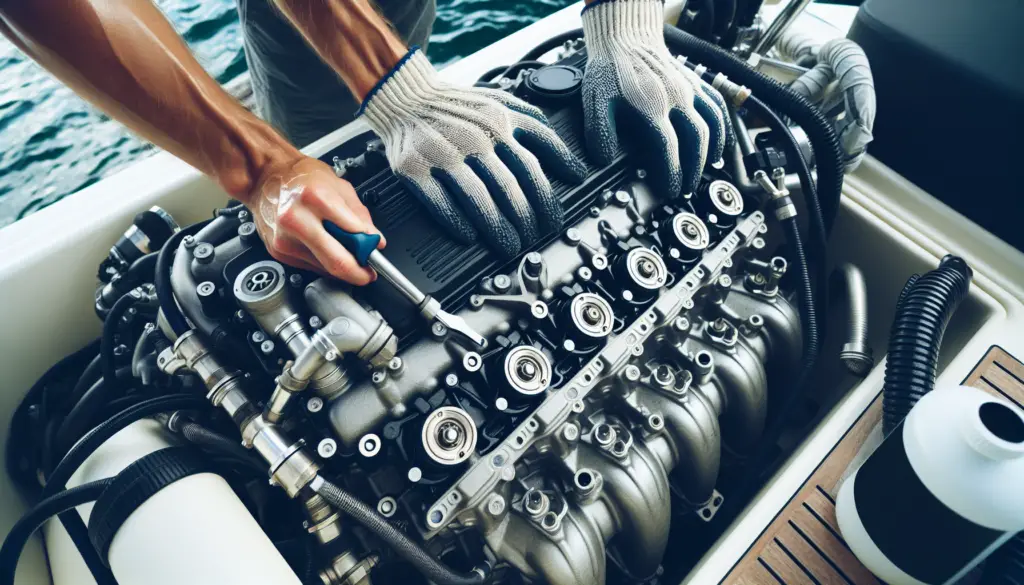
Skipping Regular Inspections
Regular inspections of the boat engine can save a lot of trouble down the line.
Not doing preventive maintenance
Preventive maintenance involves inspecting the engine regularly for potential issues that could lead to significant problems in the long run. Ignoring preventive checks can lead to small issues becoming big headaches.
Ignoring signs of wear and tear
Ignoring signs of wear and tear is never a good idea. If left unattended, worn components can damage other parts of the engine, leading to costly repairs.
Lack of visual examination of engine
A visual examination of the engine is a simple but effective inspection method. Look for any signs of wear, corrosion, or leaks, as these can serve as early warning signs of future issues.
Neglecting the Fuel System
Just like the engine itself, the fuel system needs attention.
Not using clean and fresh fuel
Using clean and fresh fuel should be a priority. Old or contaminated fuel can cause your engine to run less efficiently and possibly damage the fuel pump.
Failure to regularly check and clean fuel filters
Fuel filters need regular attention. Failing to check and clean them could lead to a build-up of debris and sediment, which can restrict the fuel flow to your engine, leading to poorer performance.
Neglecting to drain fuel before storing
If you plan to store your boat for any length of time, neglecting to drain fuel is a no-no. Over time, fuel can degrade, contributing to problems when it’s time to bring the boat back into service.
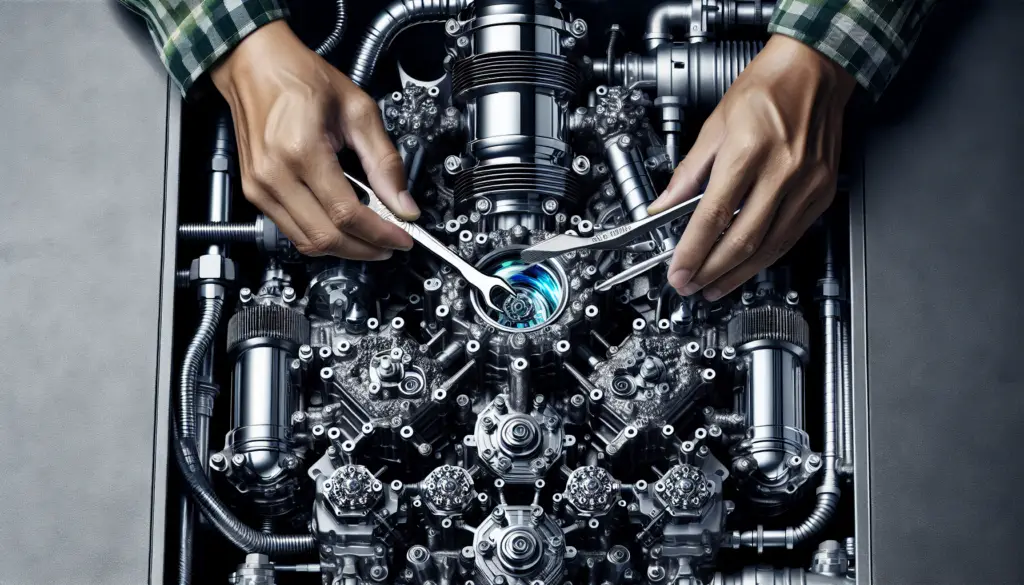
Overlooking Belt, Cables and Hoses
Belts, cables, and hoses have a crucial role in your engine’s performance.
Not checking belts, cables and hoses for wear
Neglecting to check them for wear can lead to engine failure. They should be inspected for any signs of wear, cracking, or lack of tension to ensure they’re in good condition.
Ignoring signs of fraying, corrosion or leakage
Frayed cables, corroded surfaces, or leaking hoses are clear signs of damage and should not be ignored. They could lead to dangerous situations if they fail when you’re out on the water.
Failing to replace old and damaged parts
Old and damaged parts won’t just perform inefficiently, they could potentially affect other components in your engine. Always make sure to promptly replace any parts showing signs of wear or damage.
Disregarding Possible Water Ingress
One of the threats that most boat owners overlook is potential water ingress.
Lack of attention to leaks
Leaks, big or small, should never be ignored. Always make sure to address any signs of water ingress into the engine as soon as possible, to prevent severe damage.
Ignoring water in the bilge
Water in the bilge isn’t just a symptom of a leak somewhere. It could also cause significant damage if left unchecked, as water can corrode the boat’s structural parts and lead to irreparable engine damage.
Not checking for possible water ingress into the engine
Regularly checking for possible water ingress into the engine is a simple way to avoid massive repair costs further down the line. Make sure also to examine seals and other openings for any signs of seepage.
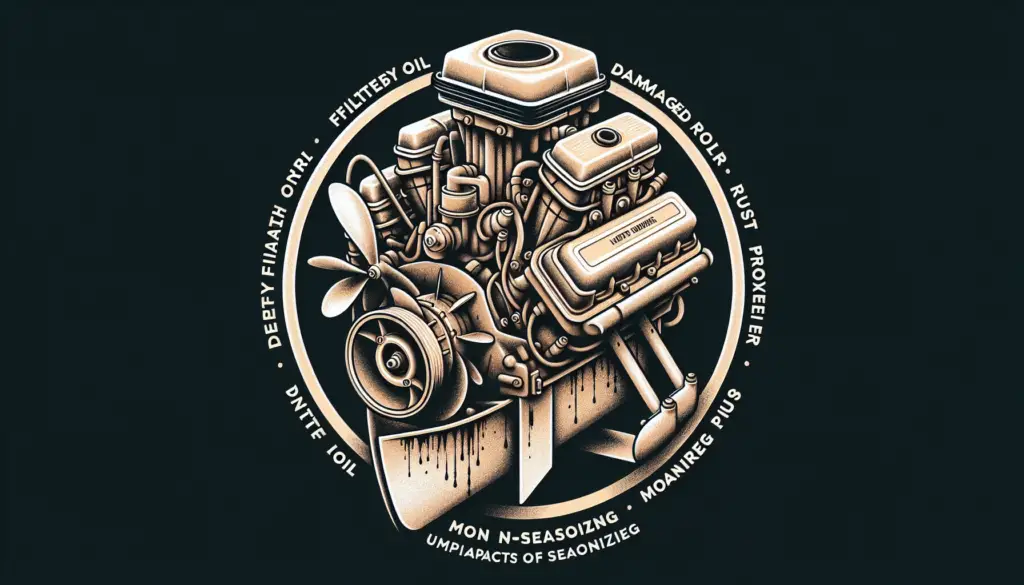
Failure to Flushing Out the Engine
Just as internal maintenance is vital, external maintenance like flushing out the engine is equally crucial.
Not flushing the engine after boating in saltwater
If you use your boat in saltwater, make sure to flush the engine after every outing. Saltwater can cause corrosion and mineral build-up if left to dry in the engine.
Ignoring blockages in the cooling system
The cooling system is vital in keeping the engine’s temperature under control. Ignoring blockages in this system can lead to overheating and potential engine failure, especially in larger boat engines.
Failing to regularly flush the cooling system
Regular flushing is necessary to keep the cooling system functional. It rids the system of potential blockages and ensures that coolant is properly circulating throughout the engine.
Maintenance of Electrical Systems Ignored
The integrity of the boat’s electrical system should never be taken for granted.
Not checking battery conditions
A dead battery could leave you stranded on the water. Therefore, it’s crucial to regularly check your boat’s battery condition.
Ignoring corroded connections and wires
Corroded connections and wires can disrupt the power supply to crucial systems and components in your boat. When left unattended, this issue can cause significant damage.
Failing to address tripping circuit breakers
Tripping circuit breakers are not just an annoyance; they’re a potential sign of a significant electrical problem. Therefore, it’s essential not to ignore them and seek help if necessary.
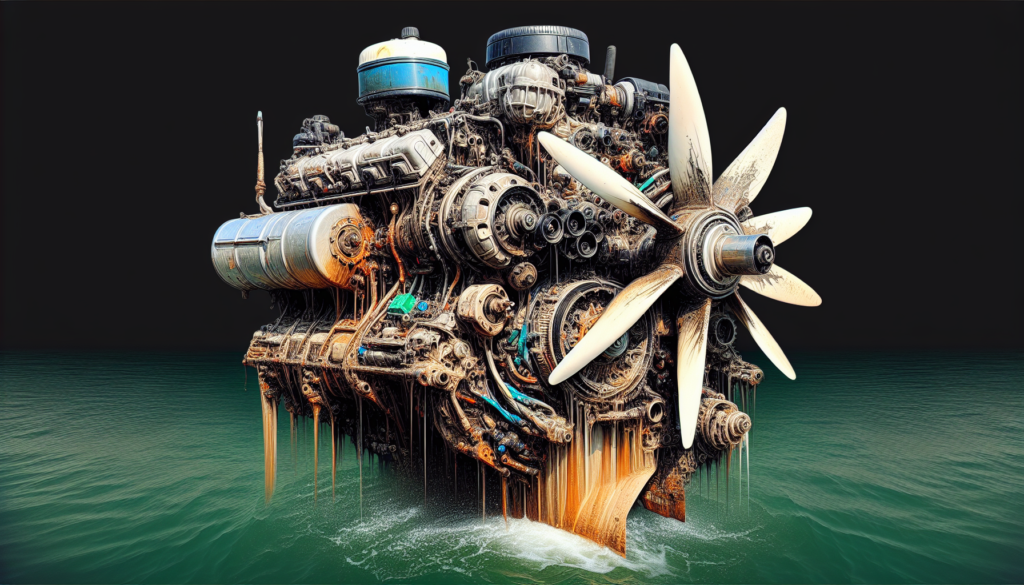
Ignoring Maintenance during Storage
Proper storage significantly contributes to the longevity of the boat engine.
Not preparing the boat engine for storage
Not preparing the engine for storage is often neglected. This includes draining fluids, protecting it from rust formation, and disconnecting the battery.
Failure to take out all fluids before storage
Leaving fluids in an engine over prolonged storage can result in compromised performance when the boat is put back into service.
Ignoring usage of storage fogging oil
Storage fogging oil protects engine components during long storage periods. Ignoring this can lead to the formation of rust, corrosion, and potential seizing when starting the engine back up.
Overlooking Regular Engine Tune-Ups
Regular tune-up is one thing many boat owners overlook, which keeps the engine running efficiently and extends its lifespan.
Failure to conduct regular tune-ups
Regular engine tune-ups may seem like a hassle, but they can significantly improve your boat’s performance and ensure that it remains reliable for a long time.
Ignoring adjusting carburetor and timing
For optimum performance, adjustments to the carburetor and timing are necessary. Ignoring these could lead to inefficient fuel consumption and permanent engine damage.
Not replacing spark plugs as recommended
Spark plugs play a vital role in your engine’s ignition system. Failing to replace them according to the recommended schedule might lead to poor performance and potential engine damage.
In conclusion, familiarize yourself with these common mistakes and take all the necessary steps to prevent them. Regular maintenance is not only beneficial for your boat’s engine, but it also ensures safe and enjoyable moments on the water.

